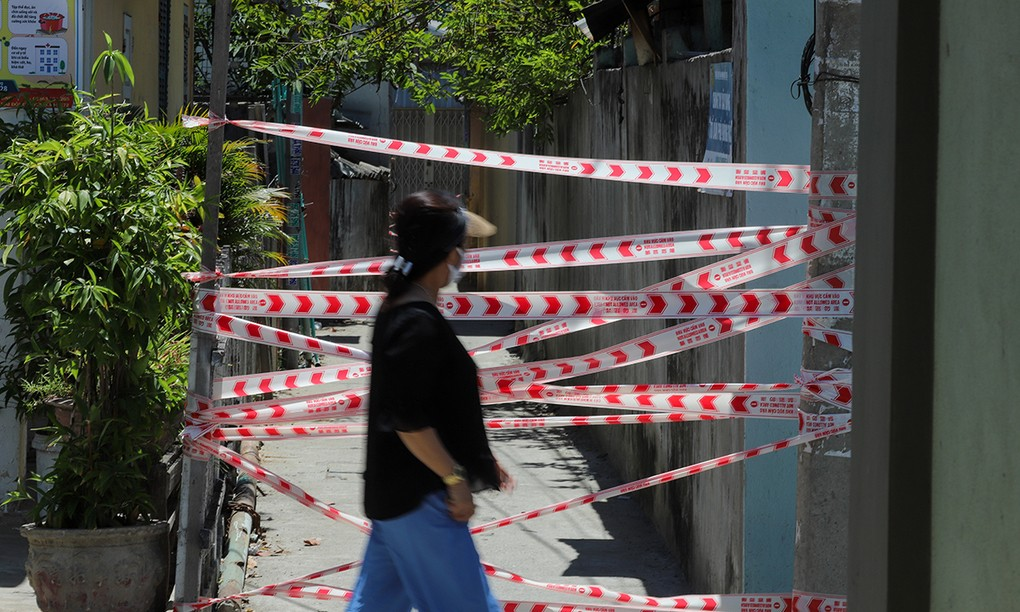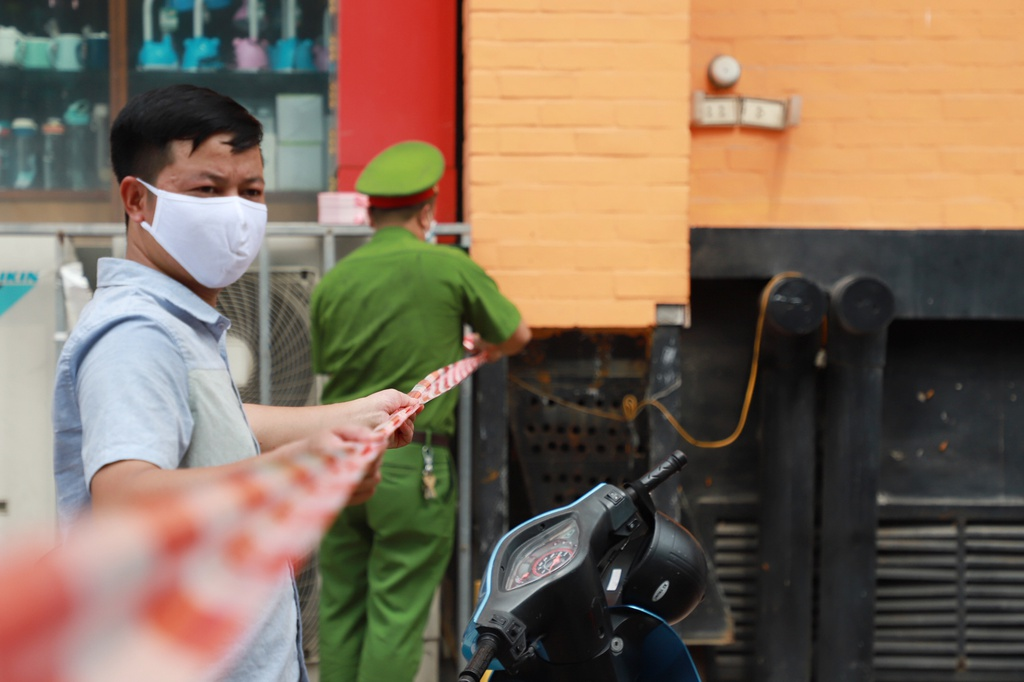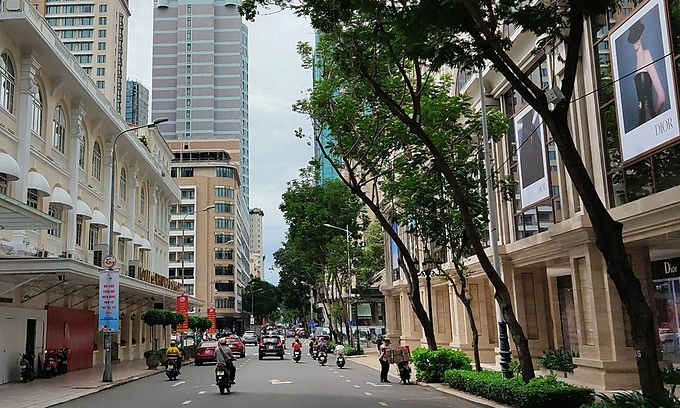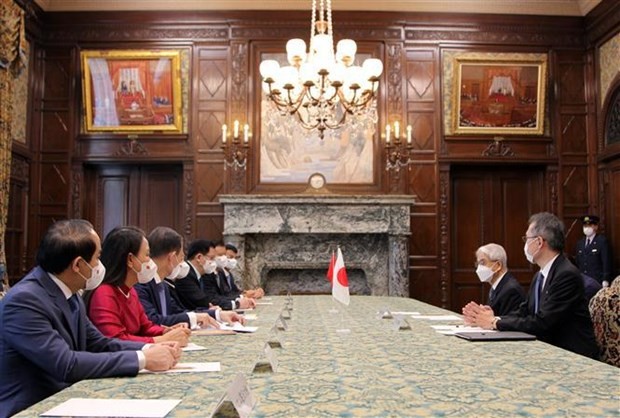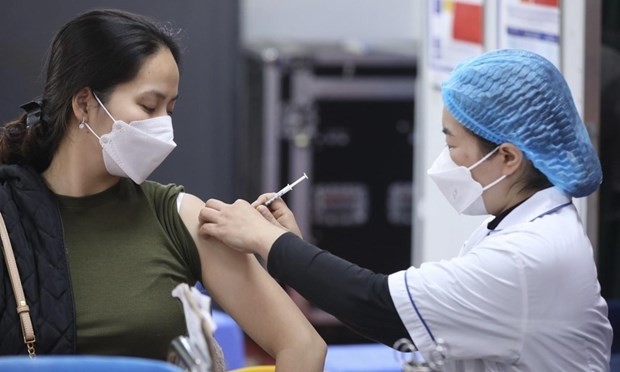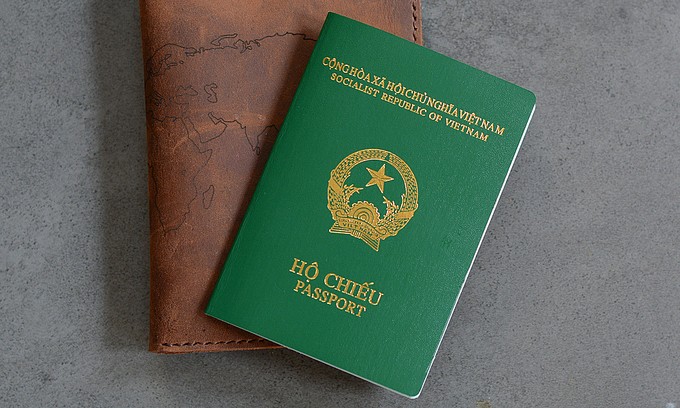Top scientists uncertain about the need for Covid-19 booster shots
In interviews with Reuters, more than a dozen influential infectious disease and vaccine development experts said there is growing evidence that a first round of global vaccinations may offer enduring protection against the coronavirus and its most worrisome variants discovered to date.
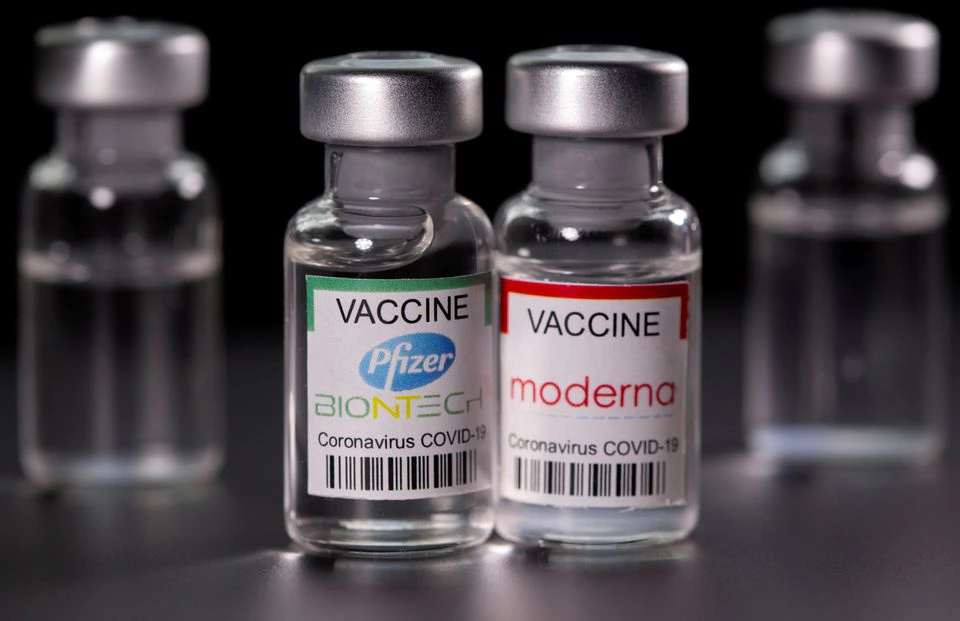 |
| Vials with Pfizer-BioNTech and Moderna coronavirus disease (COVID-19) vaccine labels are seen in this illustration picture taken March 19, 2021. REUTERS/Dado Ruvic/File Photo |
Some of these scientists expressed concern that public expectations around COVID-19 boosters are being set by pharmaceutical executives rather than health specialists, although many agreed that preparing for such a need as a precaution was prudent, according to Reuters.
They fear a push by wealthy nations for repeat vaccination as early as this year will deepen the divide with poorer countries that are struggling to buy vaccines and may take years to inoculate their citizens even once.
“We don’t see the data yet that would inform a decision about whether or not booster doses are needed,” said Kate O’Brien, director of the Department of Immunization, Vaccines and Biologicals at the World Health Organization (WHO).
Pfizer Inc Chief Executive Albert Bourla has said people will “likely” need a booster dose of the company’s vaccine every 12 months - similar to an annual flu shot – to maintain high levels of immunity against the original SARS-CoV-2 virus and its variants.
Pfizer, responding to the criticism, said it expects a need for boosters while the virus is still circulating widely. That could change once the pandemic is more firmly under control, a company spokeswoman said.
Moderna Inc CEO Stephane Bancel aims to produce a vaccine by the fall that targets a variant first identified in South Africa and expects regular boosters will be needed.
The United States is preparing to have such doses on hand for Americans, while the European Union, Britain and Israel have ordered new supplies of COVID-19 vaccines to deploy as protective boosters.
Some health experts, including Richard Hatchett, chief executive of the Coalition for Epidemic Preparedness Innovations (CEPI) that has funded many vaccine projects, say vaccine makers are right to plan ahead for boosters given the uncertainty over what will be needed in the long run.
Uncertainty of booster shots and broader immunity
Pfizer and German partner BioNTech SE have so far found that their shot remains more than 91% effective for six months after people received their second dose, compared with nearly 95% demonstrated in their clinical trial. The companies will track how robust the protection remains over time.
Dr. William Gruber, Pfizer’s senior vice president of vaccine clinical research and development, told Reuters earlier this month the prediction for yearly boosters was based on “a little evidence” of a decline in immunity over those six months.
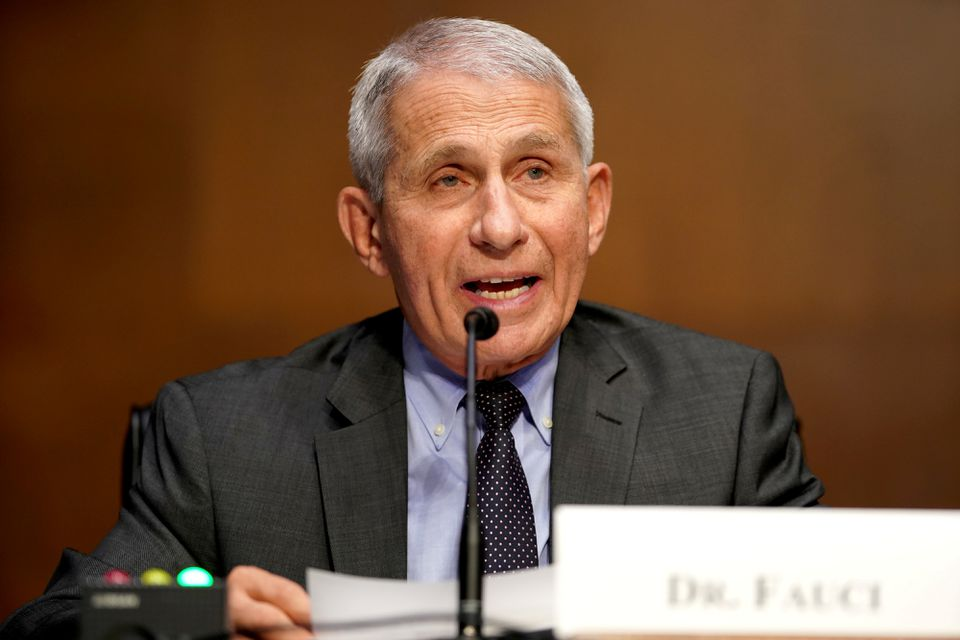 |
| Dr. Anthony Fauci, director of the National Institute of Allergy and Infectious Diseases, gives an opening statement during a Senate Health, Education, Labor and Pensions Committee hearing to discuss the on-going federal response to COVID-19, at the U.S. Capitol in Washington, D.C., U.S., May 11, 2021. Greg Nash/Pool via REUTERS/File Photo |
Pfizer expects the COVID-19 vaccine to be a major revenue contributor for years, and has forecast sales of $26 billion from the shot in 2021. Global spending on COVID-19 vaccines and booster shots could total $157 billion through 2025, according to U.S. health data firm IQVIA Holdings.
Late last year, scientists were optimistic that highly effective vaccines could quickly curb the global pandemic that has battered economies and killed more than 3.4 million people.
Those hopes dimmed by February with evidence that mutant versions of the virus might evade protection offered by vaccines. Laboratory studies showed that the South African variant could produce six to eight-fold reductions in antibody levels among people vaccinated with the Pfizer or Moderna vaccines.
In the trial, Moderna is testing a 50-microgram dose of its vaccine in previously vaccinated individuals. It found the booster dose increased neutralizing antibody responses against the original virus as well as B.1.351 and P.1, two variants that have since spread to other countries, including the U.S, CNBC reported.
The company also said a booster shot of its other vaccine, which it is calling mRNA-1273.351, generated an even better immune response over its current vaccine against the B.1.351 variant from South Africa. The new vaccine is a variant-specific booster shot intended to target B.1.351.
The preliminary results, which Moderna says will be published online, have not yet been peer-reviewed.
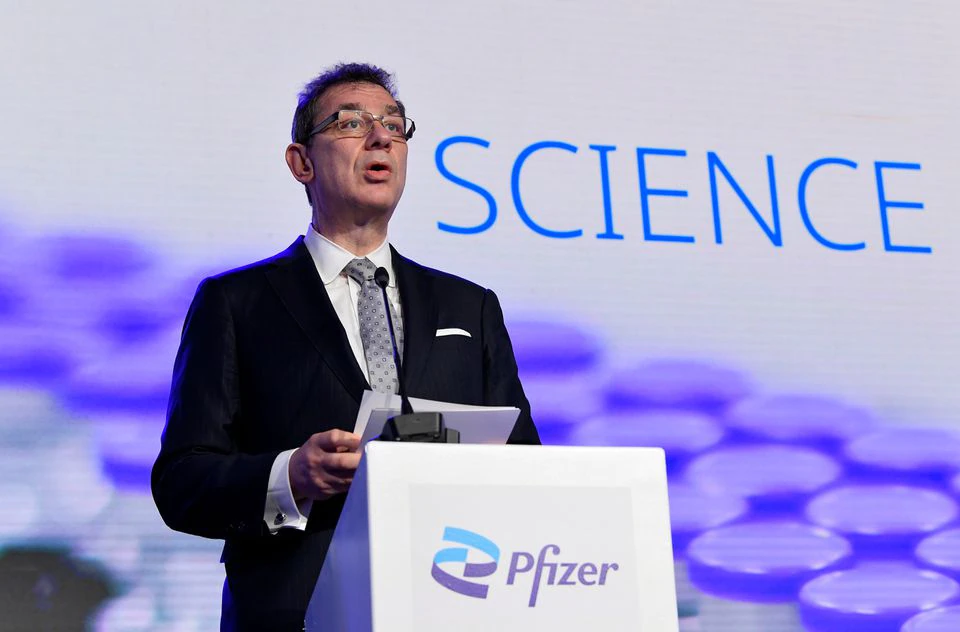 |
| Pfizer CEO Albert Bourla talks during a press conference with European Commission President Ursula von der Leyen after a visit to oversee the production of the Pfizer-BioNtech COVID-19 vaccine at the factory of U.S. pharmaceutical company Pfizer in Puurs, Belgium April 23, 2021. John Thys /Pool via REUTERS/File Photo |
Moderna said side effects were similar to those observed after the second dose of the vaccine in the previously reported studies. Side effects included pain at the injection site, fatigue and headache as well as muscle and joint pain.
The new data comes as drugmakers and scientists now say people will likely need a booster shot of the Covid-19 vaccines and possibly additional shots each year, just like for the seasonal flu.
White House chief medical advisor Dr. Anthony Fauci has previously said Americans may need to get booster shots to better protect against variants.
Clinical trial data also showed that vaccines from AstraZeneca Plc, Johnson & Johnson and Novavax Inc were less effective at preventing infections in South Africa, where the variant is widespread.
These studies spurred drug companies to start testing booster doses of their vaccines and to develop shots that target specific variants of the virus.
The National Institutes of Allergy and Infectious Diseases (NIAID) researchers found that T cells in the blood of people who recovered from the original virus could still fight off infections caused by the concerning variants found in the UK, South Africa and Brazil.
“It’s quite possible” that boosters would not be needed, Fauci told Reuters. “It is conceivable that the variants will not be as much a problem with a really good vaccine as we might have anticipated.”
Nevertheless, health authorities in the United States, Britain and Europe are assuring their populations that a new round of shots will be available if needed, with many nations still desperate for vaccine supplies.
“It’s a huge concern that ... wealthy countries would begin administering booster doses and further constraining supply of people’s first dose of vaccine,” said Rajeev Venkayya, head of global vaccines for Takeda Pharmaceutical Co.
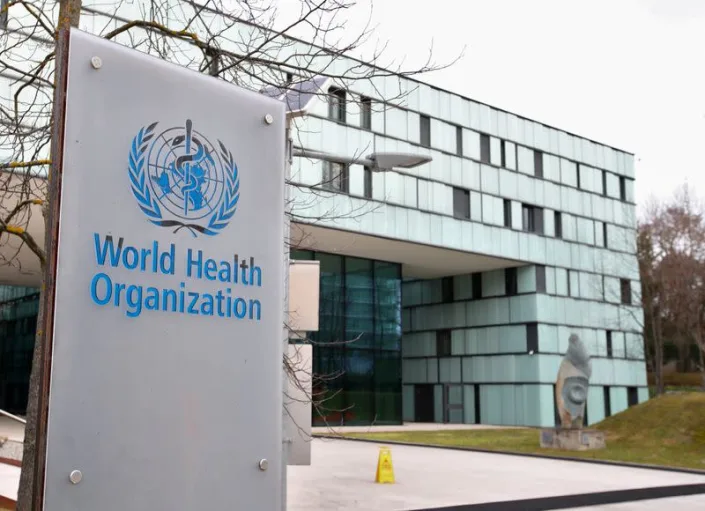 | WHO: Seychelles Covid-19 data reviewed after fully vaccinated people test positive On Tuesday, World Health Organization (WHO) said it was reviewing COVID-19 data from Seychelles, the world’s most vaccinated country, after a third of people who ... |
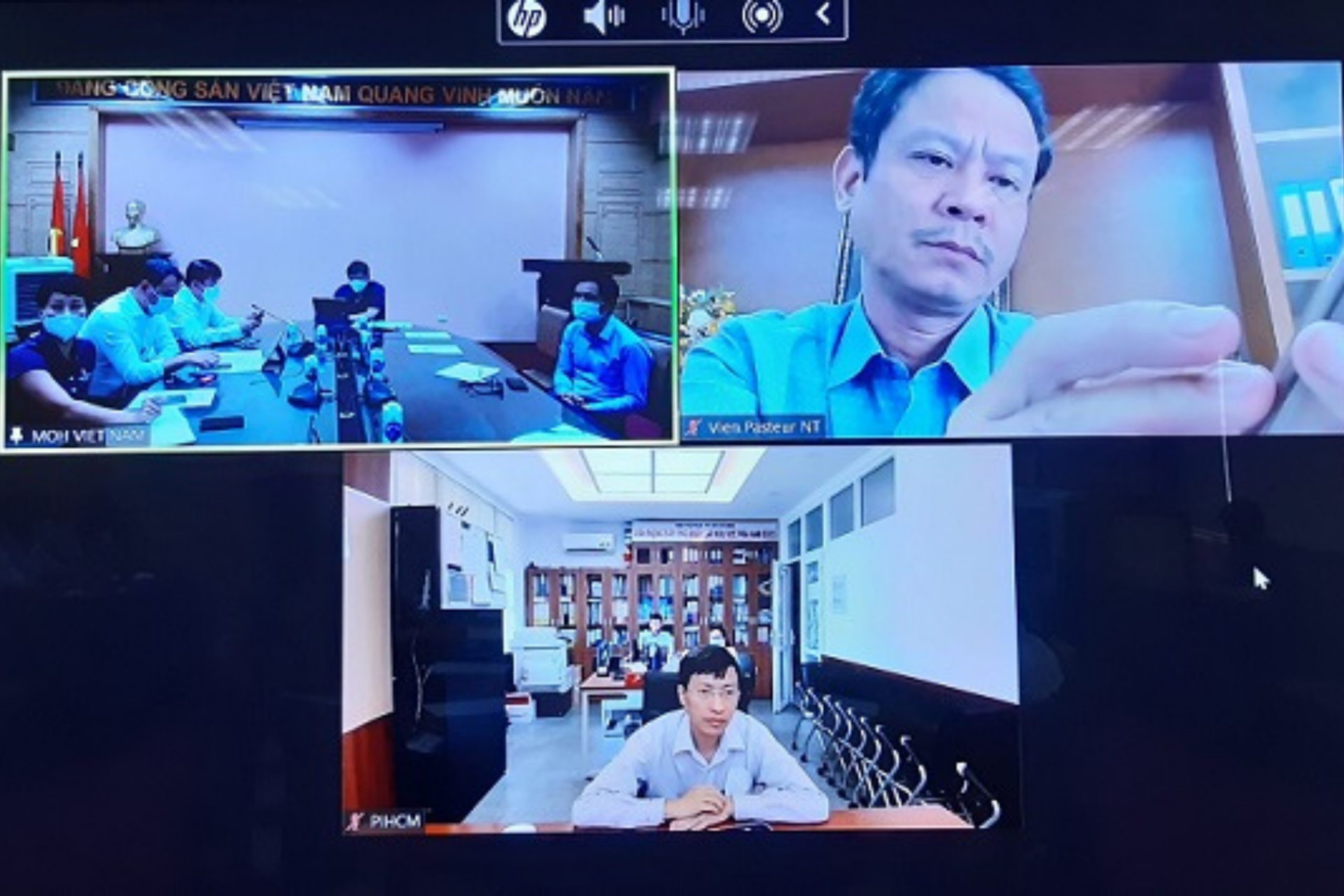 | Vietnam Seeks mRNA Tech Transfer amid COVID-19 Vaccine Supply Issues The Health Ministry prepares to receive mRNA technology transfer. |
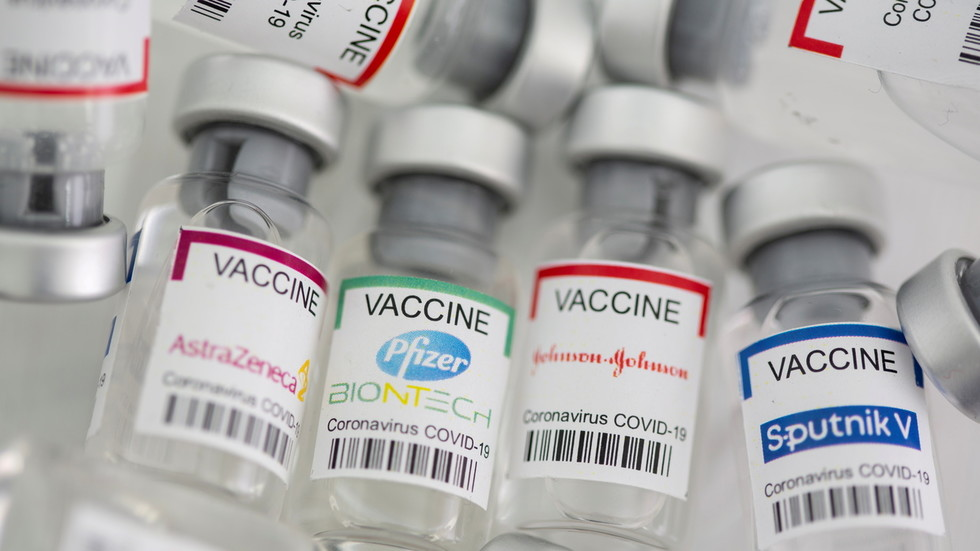 | Norway should exclude J&J and AstraZeneca Covid-19 vaccines over potential side effects According to a government-appointed commission on Monday, Norway should consider excluding Covid-19 vaccine made by AstraZeneca and Johnson&Johnson from inoculation programme due to its potential ... |
Recommended
 World
World
Pakistan NCRC report explores emerging child rights issues
 World
World
"India has right to defend herself against terror," says German Foreign Minister, endorses Op Sindoor
 World
World
‘We stand with India’: Japan, UAE back New Delhi over its global outreach against terror
 World
World
'Action Was Entirely Justifiable': Former US NSA John Bolton Backs India's Right After Pahalgam Attack
Popular article
 World
World
US, China Conclude Trade Talks with Positive Outcome
 World
World
Nifty, Sensex jumped more than 2% in opening as India-Pakistan tensions ease
 World
World
Easing of US-China Tariffs: Markets React Positively, Experts Remain Cautious
 World
World

